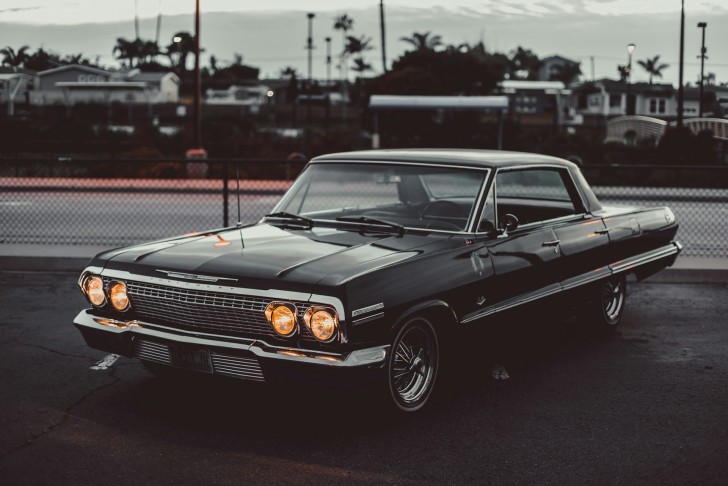One of the biggest reasons for this rise in value is the growing demand for rare, well-preserved models. As automakers focus on modern technology, classic cars offer a nostalgic charm that many find irresistible.
This article explores key trends shaping the market, the factors driving investment interest, and how restored icons continue to appreciate in value. Whether for passion or profit, the classic car market offers exciting opportunities.
The Rise of Classic Car Investments
Classic cars have become more than just collector’s items—they are now recognized as appreciating assets. Unlike modern vehicles that lose value over time, well-maintained classics often increase in worth. Their rarity, historical significance, and enduring appeal make them attractive investments.
Why Are Classic Cars Gaining Value?
Several factors drive the rising demand for classic vehicles:
- Nostalgia – Many collectors seek the cars they admired in their youth. Owning a piece of automotive history is a personal and emotional investment.
- Craftsmanship – Vintage cars were built with high-quality materials and unique designs, making them stand out in a world of mass-produced vehicles.
- Limited Supply – As time passes, fewer classic models remain in pristine condition, increasing their desirability.
Market Trends and Investment Appeal
Global economic trends also influence classic car values. During uncertain times, tangible assets like classic cars attract investors looking for stability. Additionally, growing interest from younger collectors and international buyers continues to push prices higher.
For those seeking a valuable long-term investment, classic cars offer both financial potential and the joy of ownership.
Market Trends: What’s Hot and What’s Not
The classic car market is constantly evolving, with certain models gaining popularity while others fade into the background. Collectors and investors are drawn to specific brands and restoration styles that hold long-term value.
Most Sought-After Classics
Some of the hottest restored classics right now include:
- Vintage Porsches – Models like the Porsche 911 (especially air-cooled versions) continue to appreciate in value.
- Ford Mustangs – First-generation Mustangs, particularly fastbacks, remain highly desirable.
- Land Rovers – Restored Defenders and Series Land Rovers are in demand due to their rugged appeal.
Emerging Trends in Restoration
The restoration industry is seeing a shift toward modern upgrades:
- Electrified Classics – Converting classic cars to electric power is gaining traction.
- Restomods – Classic looks with modern performance features are popular.
- Sustainability – Eco-friendly materials and upgrades appeal to a new generation of buyers.
The Role of Auctions & Online Marketplaces
Auction houses like RM Sotheby’s and online platforms such as Bring a Trailer play a key role in setting market values. Bidding wars and collector interest often drive prices higher, shaping future trends in the industry.
Key Factors That Affect Classic Car Value
The value of a classic car depends on several key factors that influence collector demand and market trends. Understanding these elements helps buyers and investors make informed decisions.
Rarity, Provenance, and Originality vs. Modifications
- Rarity – Limited production numbers or unique specifications increase a car’s worth.
- Provenance – A car with a well-documented history, celebrity ownership, or racing heritage commands higher prices.
- Originality vs. Modifications – Unrestored, factory-original models often hold more value, but high-quality restomods with modern upgrades can also attract premium buyers.
The Importance of Professional Restoration and Maintenance
A well-restored classic car retains its value better than one with poor workmanship. Professional restorations using period-correct parts, high-quality materials, and expert craftsmanship enhance long-term appreciation. Regular maintenance is also crucial to preserving value.
How Market Cycles Influence Pricing Trends
Like any investment, classic car values fluctuate based on economic conditions, collector demand, and industry trends. During strong economic periods, prices soar, while downturns can create buying opportunities for savvy investors.
Best Restored Classics for Investment
Some classic cars hold their value better than others, making them smart investment choices. Models like the Mercedes-Benz G-Class, Jaguar E-Type, and Ford Bronco have consistently appreciated due to their timeless appeal, durability, and strong collector interest. Their combination of heritage and modern usability makes them highly desirable.
Choosing the right restoration specialist is crucial for maximizing value. A well-executed restoration preserves authenticity while improving performance and reliability. Poor workmanship, on the other hand, can significantly reduce resale value.
For those looking at premium restorations, the Custom G Wagon stands out as a prime example. These meticulously restored vehicles maintain their rugged charm while incorporating modern upgrades like improved suspension, high-end interiors, and powerful engine modifications. The combination of craftsmanship, increasing demand, and limited supply makes them a top choice for collectors and investors seeking both exclusivity and long-term value.
Conclusion
Restored classic cars continue to be a strong investment, offering a mix of nostalgia, craftsmanship, and long-term financial potential. Their value lies in their history, uniqueness, and the quality of their restoration.
Investing in these vehicles requires a balance between passion and practicality. While returns can be substantial, doing thorough research and selecting high-quality restorations is key to long-term success. For those who appreciate both driving and collecting, classic cars remain a rewarding asset.
 Editorial staff
Editorial staff

 Editorial staff
Editorial staff


